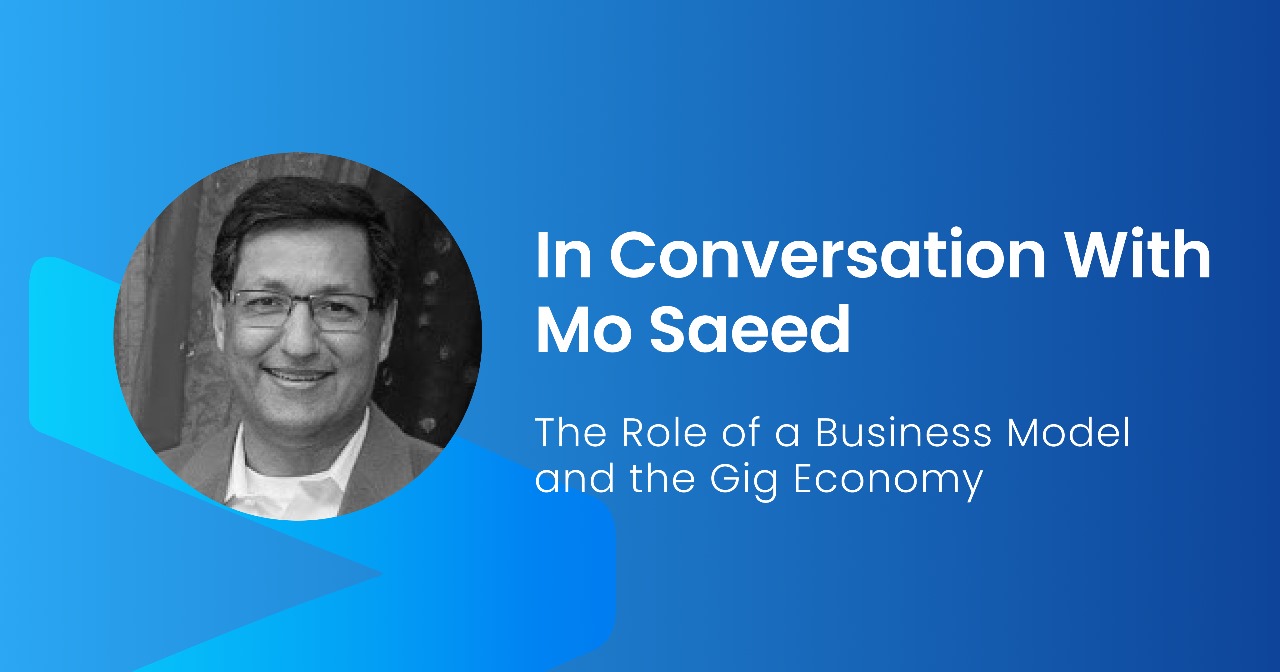Mo Saeed breaks down the gig economy. Learn key trends, insights, and strategies to excel in today's flexible, on-demand job market.

The gig economy has rapidly transformed the way people work, offering flexibility, independence, and a range of opportunities for those willing to embrace the challenges that come with it. In a recent podcast with Mark Allen from Gaper.io, Mo Saeed, CEO and founder of SalaryX, shared his insights on the current state and future of the gig economy.
Mo’s perspective is particularly valuable, given his extensive experience in the field, including his previous work with OrbisPay, a company focused on providing financial solutions to gig workers. Here are some key takeaways from their conversation.
Mo Saeed founded SalaryX less than a year ago after transitioning from his previous startup, OrbisPay. With five years of experience in the gig economy, Mo recognized that the sector was ripe for innovation, particularly in addressing some of the most pressing challenges faced by gig workers.
SalaryX aims to provide solutions that help gig workers find jobs faster, get paid promptly, and manage their finances more effectively.
As Mo noted, the gig economy is undergoing a fundamental shift, with a significant portion of the workforce expected to transition to gig work in the coming years. This shift, accelerated by advancements in AI, necessitates new tools and platforms to support the unique needs of gig workers.
The gig economy is not just about Uber drivers or delivery workers, as many might assume. According to Mo, the definition of a gig worker extends far beyond these traditional roles. It includes fractional CMOs, CFOs, freelancers, digital nomads, and essentially anyone classified as a 1099 contractor by the IRS. This broader definition underscores the fact that the gig economy is not a fringe phenomenon but a mainstream aspect of the modern workforce.
Mo pointed out that this shift is being driven by several factors, including the rise of AI and automation, which are reshaping industries and creating new opportunities for independent work. As more people move away from traditional employment, the need for solutions that cater to gig workers’ unique needs—such as managing multiple income streams, accessing financial services, and navigating tax obligations—becomes increasingly critical.
One of the primary challenges that gig workers face is the lack of financial stability. Unlike traditional employees, gig workers do not have regular paychecks, benefits, or the security of a stable income. They are essentially running their own small businesses, managing expenses, tracking income, and filing taxes independently. This can be a daunting task, especially for those who are new to the gig economy.
SalaryX aims to alleviate some of these challenges by providing tools and solutions that help gig workers find jobs faster, get paid more quickly, and manage their finances more efficiently. Mo emphasized that the goal is to be part of the solution rather than just another product in the market. He highlighted the importance of understanding the gig economy from the inside, noting that he has spent years working directly with gig workers and developing solutions tailored to their needs.
Throughout the podcast, Mo stressed that a solid business model is more crucial than the technology or product itself. He argued that many startups fall into the trap of focusing too much on the technology and not enough on the business model. Mo’s philosophy is that technology should be used to scale and manage the business, but it should not be the driving force behind it.
To illustrate this point, Mo referenced successful companies like Airbnb and Uber, which started by identifying a specific need in the market and then used technology to address it. Airbnb, for example, began by recognizing that people had extra rooms to rent and travelers were looking for affordable accommodations. The company used technology to build a platform that matched these two groups, but the business model—filling a gap in the market—was the key to its success.
Similarly, Uber identified the frustration that people experienced when trying to find a reliable and affordable way to get to the airport. By aggregating existing technologies like Google Maps, payment systems, and messaging systems, Uber was able to create a platform that solved this problem at scale. According to Mo, these companies succeeded because they understood the business model first and then applied technology to enhance and scale their operations.
Looking ahead, Mo believes that the gig economy will continue to grow and evolve, driven by technological advancements and changes in workforce dynamics. He noted that traditional employment models are becoming less relevant as more people opt for the flexibility and independence that gig work offers. However, this shift also presents new challenges that need to be addressed.
For instance, as gig work becomes more prevalent, there will be a greater need for solutions that help gig workers manage their finances, access benefits, and find stable work. Mo’s vision for SalaryX is to provide a comprehensive platform that addresses these needs, enabling gig workers to thrive in the new economy.
Mo’s insights are particularly relevant for startups and entrepreneurs looking to succeed in the gig economy. He emphasized the importance of understanding the market, identifying gaps and opportunities, and developing a solid business model before focusing on technology. For Mo, success in the gig economy—or any industry—comes from being in the business, understanding its nuances, and building solutions that address real needs.
He also cautioned against becoming too enamored with technology, noting that many startups fail because they focus too much on building a sophisticated product without fully understanding the market or the business model. Instead, Mo advocates for a more pragmatic approach, where technology is used as a tool to enhance and scale a well-defined business model.
Top quality ensured or we work for free
